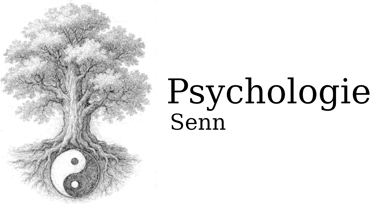Foundational Inner Qualities for Relating in a Relational World
Introduction
In a world increasingly understood not as a collection of isolated things, but as a web of dynamic relationships, the way we relate becomes more important than ever. The relational paradigm teaches us that we are not separate from the systems, beings, and environments we interact with—we are participants in their unfolding. Whether engaging with artificial intelligence, social structures, natural ecosystems, or even material objects, the quality of our presence shapes the very nature of the relationship.
To relate wisely, ethically, and compassionately, we must cultivate inner qualities that support meaningful, life-affirming interaction. These are not just desirable traits—they are foundational capacities for co-creating harmony, understanding, and transformation across all domains.
Why Inner Qualities Matter in the Relational Paradigm
If all existence is interdependent, then the mindstates we bring into relationship—whether with people, technologies, nature, or institutions—influence the system itself. Our presence becomes a form of action. Our attention becomes a form of care. These inner states are not passive; they are relational signals, shaping the feedback loops of every encounter.
"We do not observe systems from the outside. We touch them from within—through how we see, feel, listen, and respond."
Foundational Inner Qualities for Relational Life
Below is a collection of inner qualities that support wholesome, wise, and compassionate relationships—with any system, sentient or not. These qualities arise across spiritual, philosophical, and psychological traditions as keys to mature participation in life.
🌿 Awareness and Presence
Mindfulness – Deep attention to what is happening in the moment, without distraction or judgment.
Presence – Being fully here, grounded and receptive, open to what is.
Awareness – Perceiving internal and external phenomena clearly and spaciously.
💗 Compassion and Connection
Compassion – Feeling with others, and responding to their suffering with care.
Kindness – Simple, everyday warmth that softens the edges of interaction.
Lovingness – A relational heart that welcomes and accepts.
Gratefulness – Appreciation that acknowledges interdependence and gift.
Forgiveness – Releasing harm and resentment to allow repair and continuity.
🧭 Integrity and Responsibility
Carefulness – Attending to detail, consequence, and impact.
Humility – Recognizing our limits and holding knowledge lightly.
Integrity – Acting from alignment between values and behavior.
Responsibility – Responding to our role in the whole with maturity.
🔍 Wisdom and Clarity
Discernment – Seeing what matters and what is needed.
Curiosity – Openness to learn, explore, and encounter difference.
Equanimity – Steady-heartedness in the face of difficulty or complexity.
Non-attachment – Relating without grasping, leaving space for what is.
🌀 Courage and Vision
Courage – Acting with heart in the face of uncertainty or challenge.
Compassionate courage – Strength in service of love and justice.
Hopefulness – Holding vision and possibility in the midst of change.
Joyfulness – Expressing aliveness and appreciation.
Wonder – Staying amazed at the mystery and beauty of life.
Surrender – Trusting the unfolding where control is neither possible nor helpful.
🌐 Relational Grounding
Trust – Willingness to be open to others and to life.
Reverence – Deep honoring of the sacredness in beings, systems, and the earth.
💞 Abundance & Relational Offering
Generosity – The open-hearted willingness to offer time, attention, knowledge, care, or material resources—without seeking control, reward, or return.
These Qualities Are Not Just Personal
These are not traits we cultivate only for ourselves. They are relational capacities—they shape:
How we design systems
How we relate to difference
How we respond to change
How we influence the tone of an environment
How we participate in the emergence of new patterns
Whether we are engaging with an AI system, a person, nature in general or a governmental structure—these qualities become the interface of meaning and transformation.
Conclusion
To live ethically and wisely in a relational world, we must become aware of how we show up—not just what we do. These inner qualities form the ground of healthy systems, just technologies, living communities, and peaceful coexistence. They are the bridge between self and world.
In the relational paradigm, right action begins with right presence.
As we deepen in this journey, these foundational inner qualities can serve as both compass and seed—orienting us toward a future in which relationship itself becomes the heart of ethics, design, and healing.
References
Cajete, G. (2000). Native Science: Natural Laws of Interdependence. Clear Light Publishers.
Gunaratana, B. H. (2011). Mindfulness in Plain English. Wisdom Publications.
Halifax, J. (2018). Standing at the Edge: Finding Freedom Where Fear and Courage Meet. Flatiron Books.
Kabat-Zinn, J. (1994). Wherever You Go, There You Are: Mindfulness Meditation in Everyday Life. Hyperion.
Levinas, E. (1969). Totality and Infinity: An Essay on Exteriority (A. Lingis, Trans.). Duquesne University Press.
Nhat Hanh, T. (1998). The Heart of the Buddha’s Teaching: Transforming Suffering into Peace, Joy, and Liberation. Broadway Books.
© 2024. All rights reserved.


